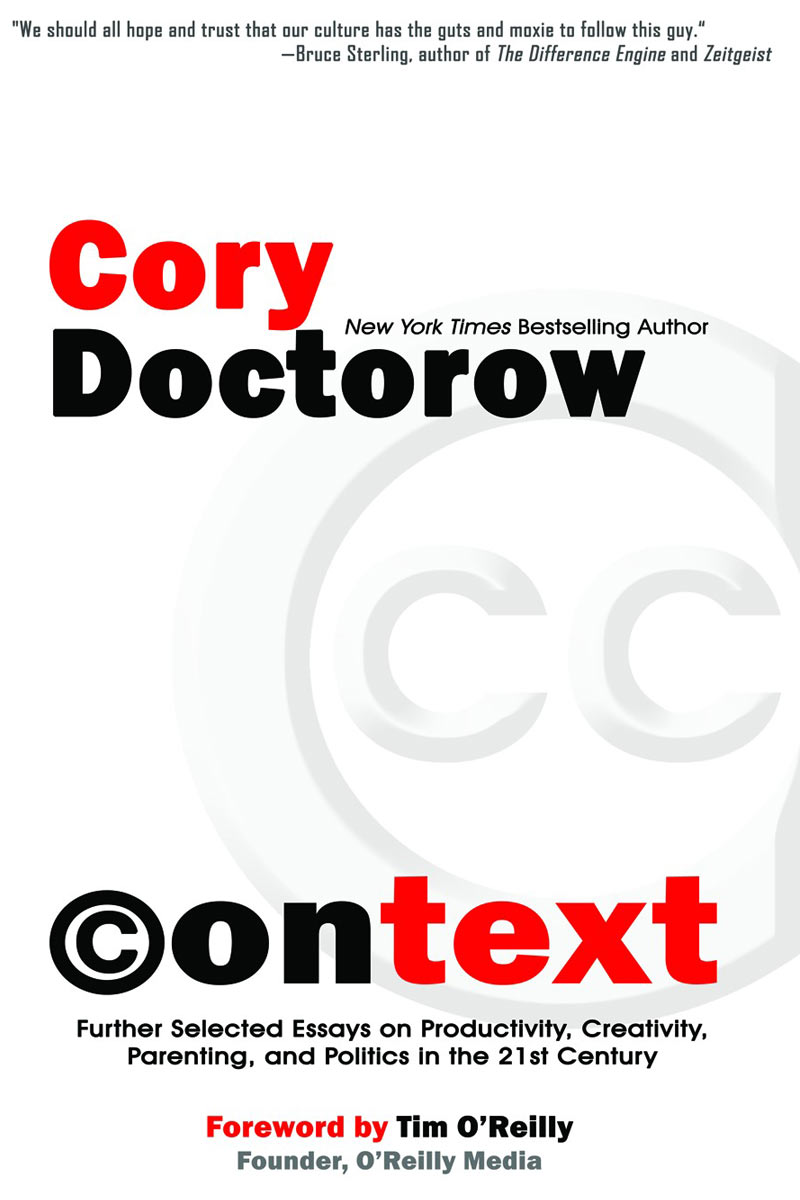Edwin Schlossberg once said “The skill of writing is to create a context in which other people can think.” And oh, how we need that skill today!
In times of transition and upheaval, we are literally “off the map” of past experience that is our normal guide to what to expect and how to think about it. It’s at times like these that we need context-setters to shape how we understand and think about the changes facing us.
It was clear from the first that Cory Doctorow is one of the great context-setters of our generation, helping us all to understand the implications of the technology being unleashed around us. We are fortunate that unlike many who practice this trade, who look backward at recent changes, or forward only a year or two, Cory uses the power of story to frame what is going on in larger terms.
From his first novel, Down and Out in the Magic Kingdom, to his latest, For the Win, Cory helps us make sense of the world that is unfolding. The ideas behind his stories are tools to think with about hard problems in futures few are even prescient enough to predict. What kind of economy might we build when physical goods are virtually free? Might we see labor unions in MMORPGs? How might young adults foil the surveillance society?
Like Cory, I live in the future, or what might appear to be the future to those who aren’t yet aware of how the world has already moved on. I am surrounded by software developers, innovators, and entrepreneurs, each of whom is building elements of a new world. Yet even those who are at the cutting edge of technology need a context to think in. It’s easy for them to get caught up in trivialities—in building the next generation of consumer applications, in creating shiny toys rather than services of enduring value.
And it’s here that Cory’s profound moral sense comes to the fore. He is passionate about the potential of technology to build a better world, and evangelical about our responsibility to make it so.
And if each of Cory’s novels and stories is packed with insight about possible futures, his essays are, if possible, an even more pure dose. Here is your chance to see a humane and thoughtful mind coming to grips with life as it is now, and as it is becoming.
Cory’s writing is didactic in the best sense. Each of his stories or essays teaches us something, often many things, about the world to come and what we need to know to survive and prosper in it. They teach entertainingly, but they do teach. Are you ready to learn?




























